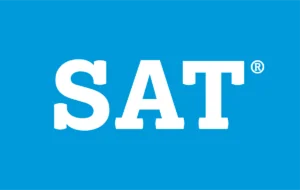Cheating has always been a widespread discussion among people in education. With the rise of technology, it has been getting harder for professors to track their students who decide to get some sort of assistance with their work. But what if the professor suspects someone of cheating and cancels exam results for the whole group of students?

✅ AI Essay Writer ✅ AI Detector ✅ Plagchecker ✅ Paraphraser
✅ Summarizer ✅ Citation Generator
Key Takeaways:
- Collective punishment in response to cheating can be unfair, especially to those who have worked hard and followed the rules. This approach can lead to frustration and demotivation among honest students, and it doesn’t directly address the issue of cheating.
- Simply canceling exam scores doesn’t truly punish cheaters; it only denies them a reward. This can create a sense of injustice among students who didn’t cheat, as it might appear that dishonesty is being tolerated.
- The responsibility for preventing cheating lies with educators. They need to ensure exams are conducted in a fair and cheat-proof environment and should be held accountable for any lapses in exam preparation that lead to cheating.
Cheating in high school and university is a growing issue that undermines the value of education. Students, under pressure to get good grades, may resort to dishonest methods like copying answers or using unauthorized materials during exams. This not only affects their learning but also unfairly disadvantages honest students. Universities and schools face the challenge of detecting and preventing cheating, especially with the rise of technology making it easier.
Some may say that there is nothing wrong with getting a bit of help during a stressful exam, but in certain cases, cheating can lead to negative consequences for the whole class. A similar thing happened to one of the Redditors, who decided to take their frustrations to the platform and share it with the community. Here’s what they had to say:
“I just took a final exam that was on the open internet, no lock down browser or anything. it was in person, but the proctor just sat in the front on her phone the whole time. i just got an email that the exam scores will not count due to widespread cheating and the inability to catch the individuals at this point. i personally did not cheat, and i don’t condone cheating, but am i wrong to think that anyone with a brain could anticipate this being an issue? i personally don’t mind that much because i still have a good grade in the class and i wouldn’t be upset at the cheaters getting punished, but this just seems a little crazy to me? i think this course has been offered for a good amount of time now, there’s no way this is a new issue. has anyone else had this experience? do you think it’s right?”
How Fair Is Collective Punishment in Academic Settings?
When an entire class faces punishment because of a few students’ actions, it raises serious ethical and practical concerns. This approach, often seen as a quick fix to cheating issues in exams, can be fundamentally unfair. Imagine a situation where most students have worked hard, abiding by the rules, only to have their efforts nullified because of a handful’s dishonesty. This not only seems unjust but also undermines the value of honesty and hard work.
“Imagine you have a 69 in this class, need a 70 to pass, and this final is your last shot to pass. You studied every day for the past two weeks, and then… it gets thrown. Wow, just wow.”
From a practical standpoint, collective punishment can lead to resentment and demotivation among students. Those who have dedicated time to studying may feel their efforts are pointless if they are unfairly penalized for others’ actions. This could create a negative learning environment, where students might feel discouraged from putting in their best effort in the future.
Moreover, this approach fails to address the root cause of cheating. Instead of taking measures to prevent dishonest practices or creating a more secure exam environment, punishing everyone might seem like an easier option but doesn’t solve the underlying problem. It also shifts the responsibility from those who cheat to those who don’t, which is not just.
“idk why they think it’s okay to allow the cheaters to hurt everyone… not that cheating is ok but also the professors here should take some responsibility for letting it happen on such a broad scale.”
In conclusion, while dealing with academic dishonesty is crucial, it’s important to ensure that any action taken is fair and targets the actual issue without unfairly impacting those who have done no wrong. This maintains a balance between upholding academic integrity and treating students justly.
Letting Cheaters Go Is Also the Wrong Approach
In academic settings, when cheating occurs and the only consequence is the cancellation of exam scores, it’s important to consider how this impacts the sense of justice among students. From one perspective, cheaters are not truly punished; they’re merely deprived of a reward they didn’t rightfully earn. This approach to handling cheating might seem logical but can feel deeply unfair to honest students.
For those who studied hard and followed the rules, seeing cheaters escape significant consequences can be frustrating. It can lead to a feeling that dishonesty is tolerated or that the efforts of honest students are undervalued. This perception might erode trust in the academic system and diminish the motivation to work hard in the future.
“I like that the cheaters are, theoretically, getting punished. Except they’re not getting punished, they’re just not getting rewarded, and that’s not the same.”
The key issue is that by not actively punishing cheaters, an educational institution might unintentionally send a message that the risks of cheating are low. This can undermine the entire academic process, where fairness and integrity are supposed to be fundamental values. Therefore, it’s essential to address cheating with appropriate penalties to maintain a just and motivating learning environment for all students.
Accountability and Proper Preparation for Professors
In an exam setting where students have unrestricted internet access and can easily use AI tools, accusing them of cheating seems contradictory. If the environment itself is conducive to dishonest practices, it’s unreasonable to solely blame students for exploiting these loopholes. This situation points to a larger issue: the need for educators to prepare exams that are fair and cheat-proof.
“An open note, open internet proctored exam with no lockdown browser, and the professor is accusing people of cheating? That makes no logical sense. The only way I can maybe understand is if the exam was a written exam and the professor caught the students using AI to write things for them.
I would report this professor to the higher authorities if you could. Your grade shouldn’t suffer from your professor’s poor exam preparation and judgement.”
It’s crucial that students take action by reporting such issues to higher authorities. This step is not just about addressing a single incident of cheating; it’s about ensuring that educators are held accountable for creating a secure and honest exam environment. By raising concerns, students can initiate a change in how exams are conducted, making them more secure and less prone to dishonesty.
Proper exam preparation by educators is essential to maintain academic integrity. It involves designing exams that are challenging yet fair, and that do not inadvertently encourage cheating. When educators take responsibility for preventing cheating, it creates a learning atmosphere based on trust and fairness, which is beneficial for all students.
Balancing Academic Integrity and Fairness in Education
Maintaining academic integrity while ensuring fair treatment for all students is a delicate balance that educational institutions must strive to achieve. This balance is crucial for fostering an environment of trust and respect in the academic world. To maintain integrity, schools and colleges need to implement strict measures against cheating, ensuring that any dishonest behavior is appropriately addressed. However, these measures must be fair and should not unjustly penalize students who have followed the rules.
One way forward for educational institutions is to invest in secure and efficient exam settings. This could involve using technology that prevents cheating or designing assessments that are less susceptible to dishonest practices. Additionally, there should be clear and consistent policies regarding academic integrity, with transparent procedures for handling violations.
Educators also play a key role in this balance. They should not only focus on preventing cheating but also on inspiring students to value honesty and hard work. By fostering a culture that celebrates integrity and fairness, educational institutions can nurture responsible and ethical future professionals.
Follow us on Reddit for more insights and updates.





Comments (0)
Welcome to A*Help comments!
We’re all about debate and discussion at A*Help.
We value the diverse opinions of users, so you may find points of view that you don’t agree with. And that’s cool. However, there are certain things we’re not OK with: attempts to manipulate our data in any way, for example, or the posting of discriminative, offensive, hateful, or disparaging material.